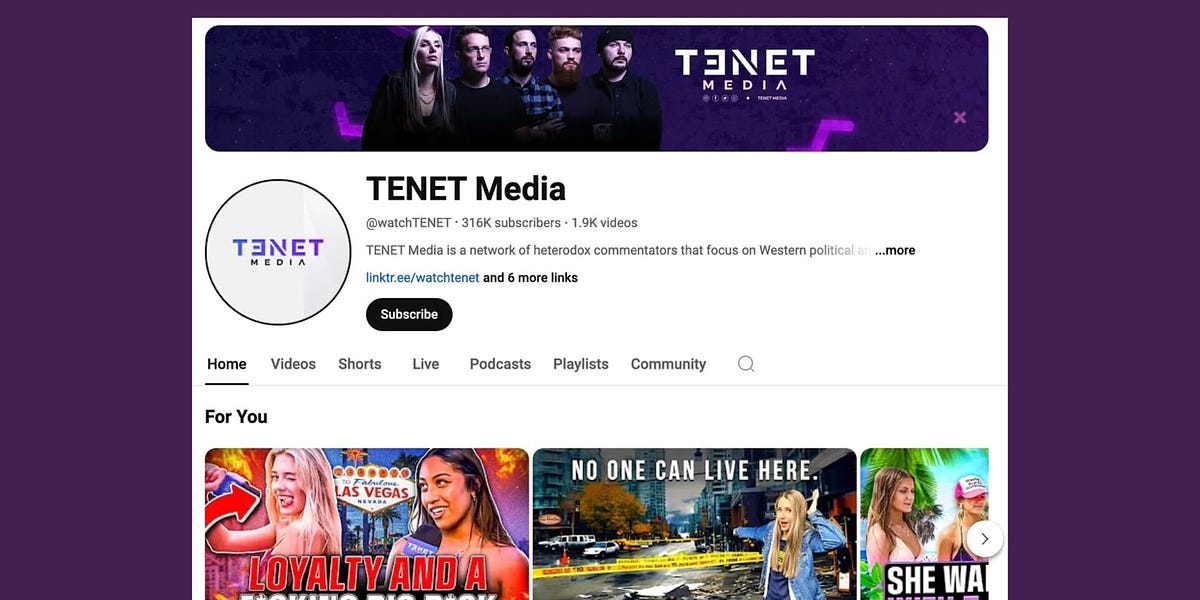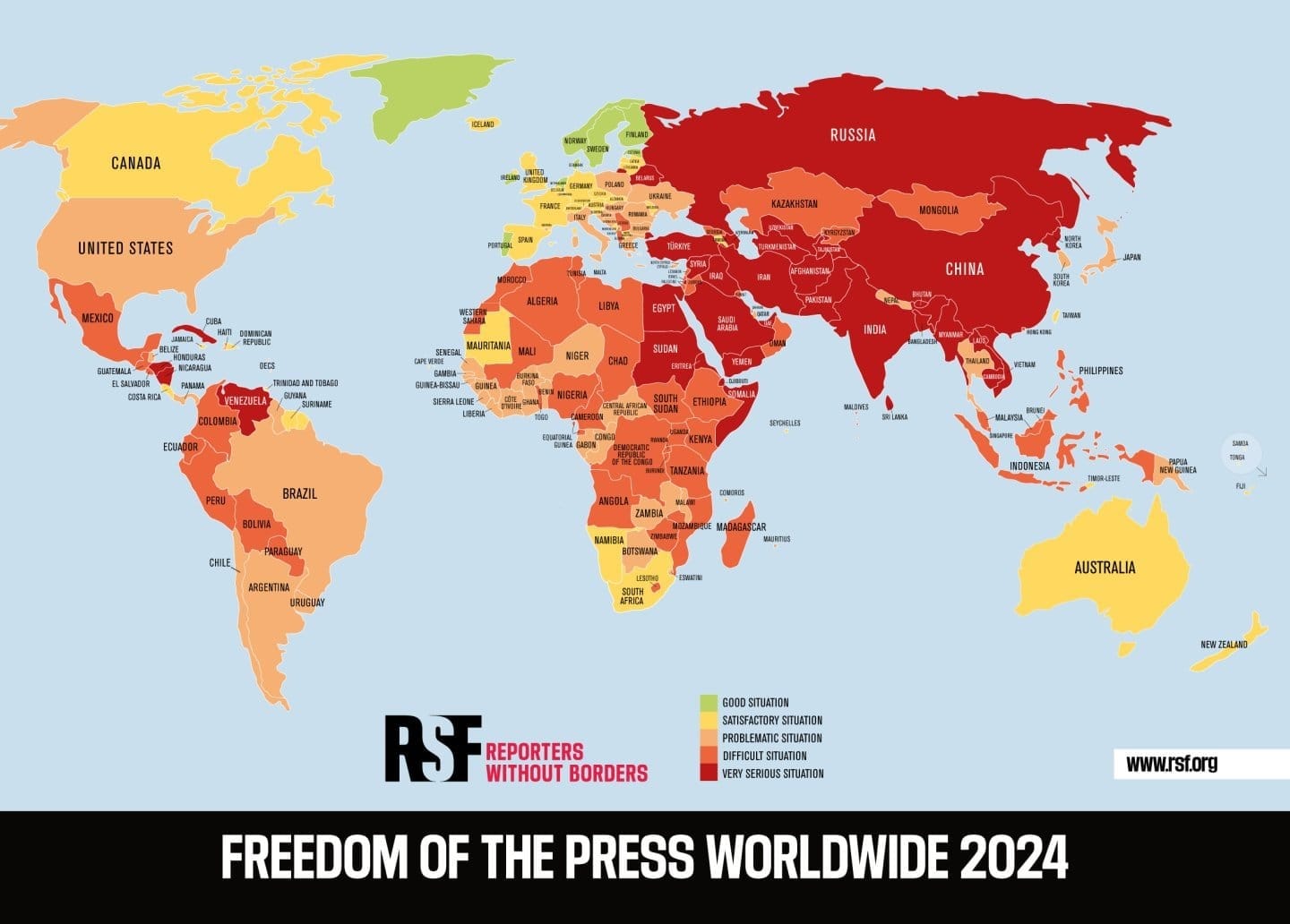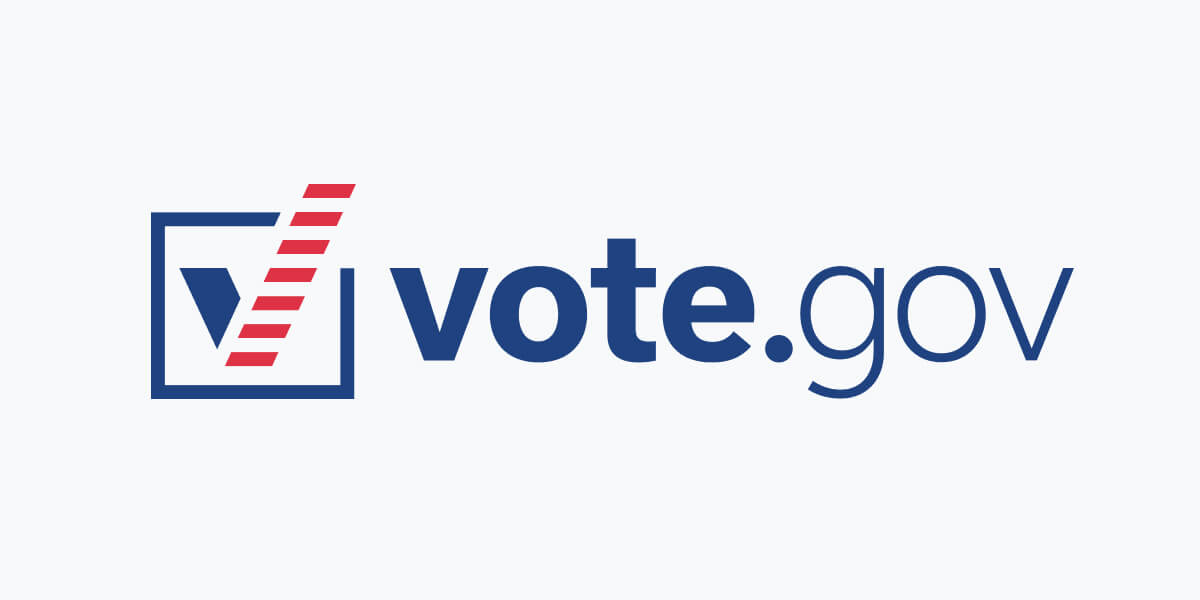Essentials, January 3, 2025
News and commentary for understanding and coping with the years ahead... The Public Domain is ours, not theirs, and we&

A compendium of the best reporting and commentary surrounding the pivotal 2024 elections in the United States. You won't find horse race coverage here, or the standard "both sides" BS that passes so often for political journalism. What you will find are links, with brief commentary, to work that I believe advances the conversation we should be having about America's – and the world's – future. Remember: Everything is at stake this year. (Unfortunately, some of the work I point to is behind paywalls.)

In the United States, the Republican party has long been aware of the democratic potential of student movements. As it lurches closer and closer to authoritarianism, it will, like all rightwing authoritarian movements worldwide, seek to crush dissent, starting with university students and faculty. With great courage and determination, the students in Bangladesh have shown that this strategy can be made to backfire.
The writer is a professor of history at Yale, and author of Erasing History: How Fascists rewrite the Past to Control the Future. In other words, he knows what he's talking about here. In this brief essay he offers caution, given the situation in America – but also hope. The latter derives from what recently occurred in Bangladesh, where students' activism led a brutal dictator to resign and flee the country. We can't be optimistic all the time, but we can always nurture hope.
Kudos: Jason Stanley

It’s a warning for the rest of the country: In effect, legislators were engaging in negotiations with shadowy groups trying to hijack the state’s ballot process, with the state itself being held hostage. Representatives of the dark money groups weren’t in attendance at the capitol — meaning that lawmakers were negotiating with political operatives they couldn’t see, and who are bankrolled by donors who the law allows to hide their identity. “I don’t trust the folks who wouldn't even show their face in this room today,” said Rep. Leslie Herod (D-Denver) to other members of the House Appropriations Committee.
Across the country, state ballot initiatives are being co-opted by wealth and corporate power. A process that was designed (with major flaws, to be sure) to give average citizens a direct say in how they are governed has become a plaything for the oligarchs. Where these ballot initiatives change state constitutions, they have even more staying power. It's a pernicious development, and it won't get better anytime soon.
Kudos: Helen Santoro
:focal(0x568:3000x2000)/static.texastribune.org/media/files/8d8a5743e0b765739f2ab3419873274e/0523%20Texas%20GOP%20Con%20EG%20TT%2014.jpg)
The legal clash escalates a brewing fight between Texas Republicans and some of the state’s largest counties over initiatives to proactively send registration applications to people who are eligible but unregistered to vote. Harris County leaders are weighing a similar plan, and Paxton warned the two counties against such efforts Monday evening, claiming they would run afoul of state law and risk adding noncitizens to the voter rolls.
The Texas state government is entirely controlled by Republicans who've been using every trick in the book – and new ones – to suppress voting by people who are likely to support Democrats. The pretext for preventing counties from helping unregistered but otherwise eligible voters get on the voting rolls is this year's Big Lie: the completely bogus claim that non-citizens are flooding the polls. And the suppression campaign is working as intended.
Kudos: Jasper Scherer

The indictment is absolutely wild and WIRED has a great rundown on the details, including how the propaganda efforts worked. The case serves as the latest high profile example of how “independent media” on the right is anything but independent, and underscores the need for more transparency around funding models in the creator economy. It also shows how disinformation efforts have increasingly focused on penetrating U.S. media through content creators, and how lucrative being a pawn in these schemes can be.
As I noted yesterday, we're just learning some details about a media (not journalism) scandal: the case of the Tennessee company that paid right-wing influencers major, major bucks to spew their rancid propaganda. Lorenz' latest newsletter observes that big money has always been available to right-wing media operations that "are anything but independent". This case is just begging for further investigation – and much more public disclosure about this entire genre. By the way, Ken White, a former federal prosecutor, posted this comment about one of the richly paid influencers who says he's a victim in the affair:

Kudos: Taylor Lorenz

The publisher of the New York Times posted an essay, warning of a war on the press if Trump re-takes the White House. A.G. Sulzberger is the latest member of his family (which holds controlling shares in the company) to be in charge there. In his piece, he gave a vivid description of how Hungary's prime minister (read: dictator), Viktor Orban, has taken control of the media through a series of moves that all but destroyed freedom of the press there. Trump and his apparatchiks, said Sulzberger, were likely planning the same kind of moves.
Then came the disclaimer that undermined everything else he wrote – and showed once again what a feckless, timid organization he leads.
As someone who strongly believes in the foundational importance of journalistic independence, I have no interest in wading into politics. I disagree with those who have suggested that the risk Trump poses to the free press is so high that news organizations such as mine should cast aside neutrality and directly oppose his reelection. It is beyond shortsighted to give up journalistic independence out of fear that it might later be taken away. At The Times, we are committed to following the facts and presenting a full, fair and accurate picture of November’s election and the candidates and issues shaping it. Our democratic model asks different institutions to play different roles; this is ours.
At the same time, as the steward of one of the country’s leading news organizations, I feel compelled to speak out about threats to the free press, as my predecessors and I have done to leaders of both parties. I am doing so here, in the pages of an esteemed competitor, because I believe the risk is shared by our entire profession, as well as all who depend on it. In highlighting this campaign, I am not advising people how to vote. There are countless issues on the ballot that are closer to voters’ hearts than protections for my broadly unpopular profession. But the weakening of a free and independent press matters, whatever your party or politics. The flow of trustworthy news and information is critical to a free, secure and prosperous nation. This is why defense of the free press has been a point of rare bipartisan consensus throughout the nation’s history. As President Ronald Reagan put it: “There is no more essential ingredient than a free, strong, and independent press to our continued success in what the Founding Fathers called our ‘noble experiment’ in self-government.”
Press critics are already tearing this apart, and rightly so. Sulzberger is simply lying when he claims the Times has been "following the facts and presenting a full, fair and accurate picture of November’s election and the candidates and issues shaping it." No major journalism organization has done more in the past few years to normalize Trump – who has vowed to be a dictator, for god's sake – and extremism. Its political coverage has been disgracefully shabby and shallow, with some noteworthy exceptions, for decades. If the Times maintained its "journalistic independence" by relentlessly doing its job, that would be a huge improvement.
It wouldn't be nearly enough, however.
Sulzberger can't wrap his privileged mind around something that feels obvious to me, but which is plainly a non-starter in the highest ranks of American media. When one candidate and party are out to kill democracy, journalism will automatically be on the hit list if they take power. The first, most existential threat is not to journalism. It is to democracy.
Which is why I've begged journalists to be activists for democracy. Some already are, but sadly, most are unwilling to connect these dots. At any rate, the Times is definitely not going to do it. At the Times, activism is reserved for mounting an all-hands-on-deck campaign pushing the incumbent president out of the race.
Sulzberger is engaging in a liberal New Yorker's fantasy when he imagines that his news organization would survive in any useful way if right-wing extremists take over our government. He and his team may have studied Hungary and other "authoritarian" states' destruction of the press, but they have plainly not learned much.
They will learn this, though, if the worst happens this fall: When fascists take over, journalists have two choices. They can collaborate with the regime. Or they can join the resistance.

Voting is just part of democracy, but it's the essential place to start. Make sure you're registered. Doublecheck in the fall, well before Election Day, because in some states Republican officials are removing people, mostly those who tend to vote for Democrats, from voting rolls.
I spend a lot of time looking for essential coverage, and hope you'll help me by letting me know about the good stuff you find. Let me know.